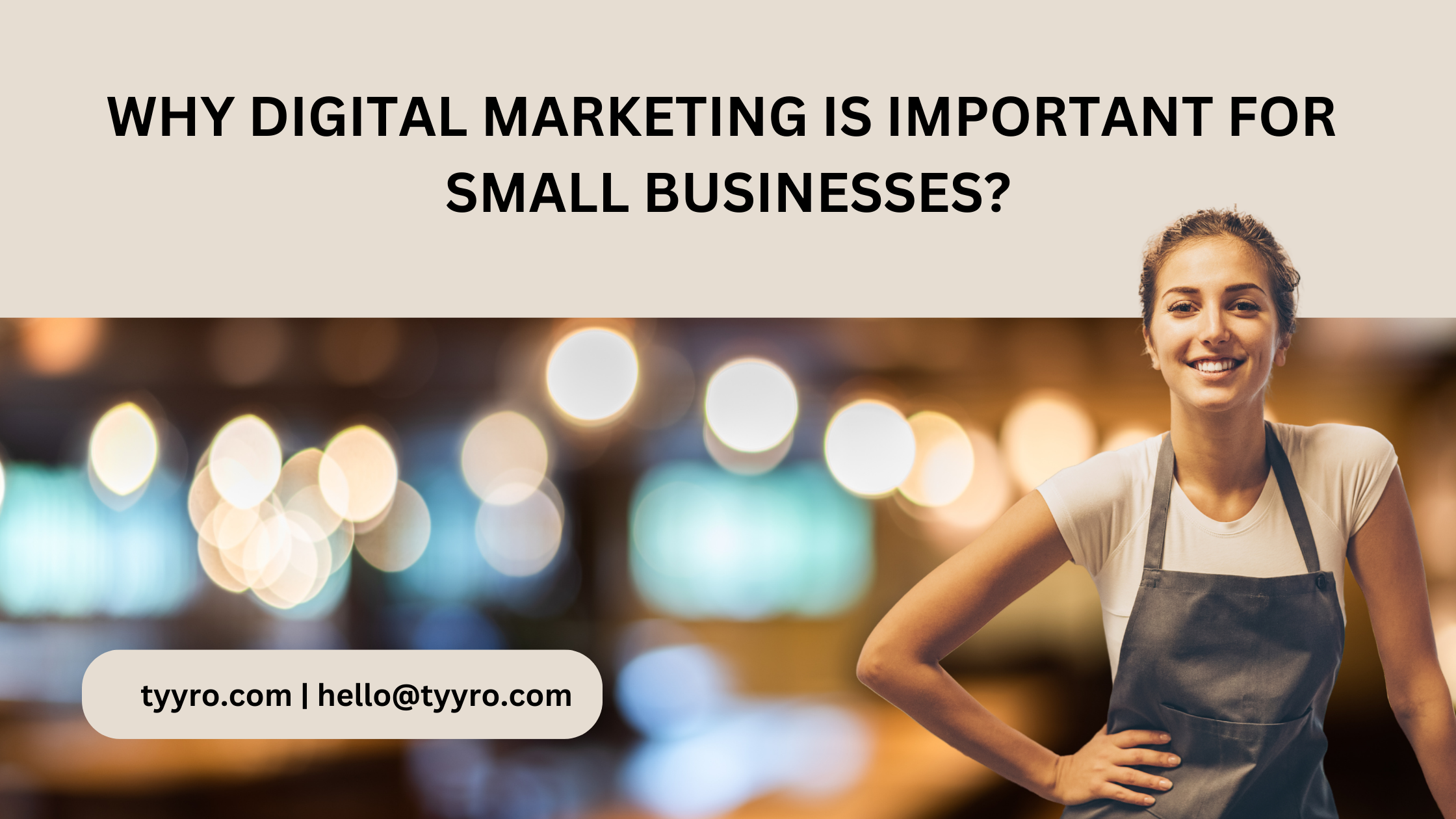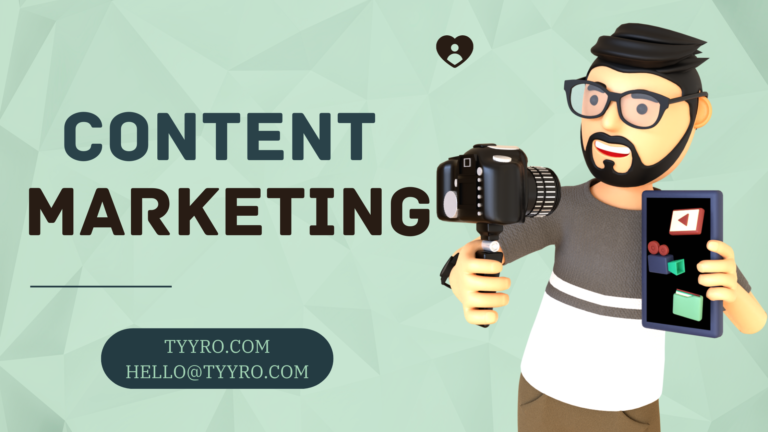Why Digital Marketing is Important for Small Business?
Why Digital Marketing is Important for Small Businesses: Unlocking Growth in the Digital Age
In today’s rapidly evolving business landscape, it’s no longer enough for small businesses to rely solely on traditional marketing methods. The digital revolution has ushered in a new era, where online presence and engagement are key to survival and success. If you’ve ever wondered, “Why is digital marketing important for small business?” then you’re about to uncover the answers. In this comprehensive guide, we’ll delve into the myriad ways digital marketing can transform your small business, drive growth, and secure a competitive edge in the market.
Why Digital Marketing is Important for Small Businesses?
In a world where consumers are increasingly turning to the internet to discover products and services, digital marketing has emerged as a vital lifeline for small businesses. This cost-effective and targeted approach offers a multitude of benefits that can’t be ignored:
Enhanced Online Visibility:
A strong digital marketing strategy ensures your small business is visible to your target audience when they search for relevant products or services online. This visibility increases your chances of attracting organic traffic, generating leads, and ultimately driving conversions.
Leveling the Playing Field:
Unlike traditional advertising, digital marketing allows small businesses to compete on a global scale. With the right tactics, even businesses with limited resources can effectively reach and engage their audience, challenging larger competitors.
Precise Audience Targeting:
Digital marketing empowers you to define your audience with precision. Through methods such as social media targeting and search engine optimization (SEO), you can tailor your messages to specific demographics, ensuring your efforts aren’t wasted on irrelevant leads.
Cost-Effective Strategies:
Small businesses often have tight budgets, and digital marketing provides a cost-effective alternative to traditional advertising channels. Strategies like content marketing, email campaigns, and social media promotion offer a high return on investment (ROI) without breaking the bank.
Real-time Engagement:
Digital marketing allows you to engage with your audience in real time. Whether it’s responding to customer inquiries on social media or participating in online discussions, this instant interaction builds trust and fosters loyalty.
Data-Driven Insights:
Digital marketing provides valuable data and analytics that help you understand your audience’s behavior, preferences, and buying patterns. These insights enable you to refine your strategies for better results over time.
Global Reach:
With the internet transcending geographical boundaries, digital marketing gives your small business the opportunity to reach a global audience. This expansive reach opens doors to new markets and revenue streams.
Personalized Customer Experience:
Through methods like email marketing and personalized content recommendations, digital marketing allows you to deliver customized experiences to your customers, making them feel valued and understood.
Brand Building:
Consistent online engagement through digital marketing helps build a strong brand identity. From the content you share to the voice you use, every interaction contributes to how your audience perceives your business.
Higher Conversion Rates:
The targeted nature of digital marketing leads to higher conversion rates. When your marketing messages are tailored to specific customer segments, you’re more likely to see leads turn into paying customers.

Exploring the Power of Digital Marketing: Engaging Strategies for Small Businesses
1.Social Media Mastery:
Social media platforms offer an invaluable avenue for connecting with your audience, sharing content, and building relationships. Utilize platforms like Facebook, Instagram, Twitter, and LinkedIn to engage your target market.
2. Content Creation Magic:
Create high-quality, relevant, and valuable content that addresses your audience’s pain points. Blog posts, articles, videos, and infographics can position your business as an authority in your industry.
3. SEO Wizardry:
Search engine optimization (SEO) is crucial for appearing in search engine results. By optimizing your website’s content, structure, and metadata, you can climb the search rankings and attract organic traffic.
4. Email Enchantment:
Craft engaging email campaigns to nurture leads, keep customers informed, and encourage repeat business. Personalized emails can significantly boost open rates and conversions.
5. Pay-Per-Click Prowess:
Invest in pay-per-click (PPC) advertising to appear at the top of search engine results for relevant keywords. This targeted approach ensures you reach users actively searching for your products or services.
6. Influencer Collaboration:
Partner with influencers in your industry to tap into their follower base. Their endorsement can introduce your business to a wider audience and build credibility.
7. Captivating Visuals:
Utilize visual content like images and videos to convey your message more effectively. Visuals are highly shareable and can help your brand stand out in crowded feeds.
8. Mobile Optimization:
Ensure your website is optimized for mobile devices. With a growing number of users accessing content via smartphones, a mobile-friendly site is essential for a positive user experience.
9. Data Analytics Deciphering:
Regularly analyze the data from your digital marketing campaigns. Identify what’s working, what’s not, and make informed decisions based on these insights.
10. Customer-Centric Approach:
Place your customers at the center of your digital marketing efforts. Address their needs, preferences, and pain points to create a more personalized and effective strategy.
FAQs about Digital Marketing for Small Businesses
Q: How can digital marketing benefit my small business?
Digital marketing offers enhanced visibility, targeted audience engagement, cost-effective strategies, and data-driven insights that can help your small business grow and succeed.
Q: Is digital marketing expensive for small businesses?
No, digital marketing can be tailored to fit various budgets. There are cost-effective strategies like content marketing and social media engagement that deliver impressive results without draining your resources.
Q: Can I handle digital marketing on my own, or should I hire professionals?
While some aspects of digital marketing can be managed in-house, partnering with experienced professionals can provide strategic insights, save time, and ensure optimal results.
Q: What role does social media play in digital marketing for small businesses?
Social media platforms are powerful tools for connecting with your audience, sharing content, building brand loyalty, and driving website traffic.
Q: How quickly can I see results from my digital marketing efforts?
The timeline for seeing results varies based on factors like strategy, industry, and competition. Some strategies, like pay-per-click advertising, can yield quicker results, while SEO and content marketing may take a bit longer to show substantial gains.
Q: How can I measure the effectiveness of my digital marketing campaigns?
Using tools like Google Analytics, you can track metrics such as website traffic, conversion rates, click-through rates, and engagement levels to gauge the success of your campaigns.
Conclusion:
Embrace the Digital Transformation for Business Success.As the business landscape continues to evolve, the importance of digital marketing for small businesses becomes increasingly evident. By harnessing the power of online platforms, targeted strategies, and data-driven insights, you can propel your small business towards growth, profitability, and long-term success. So, why wait? Embrace the digital transformation and position your small business for greatness in the digital age.






